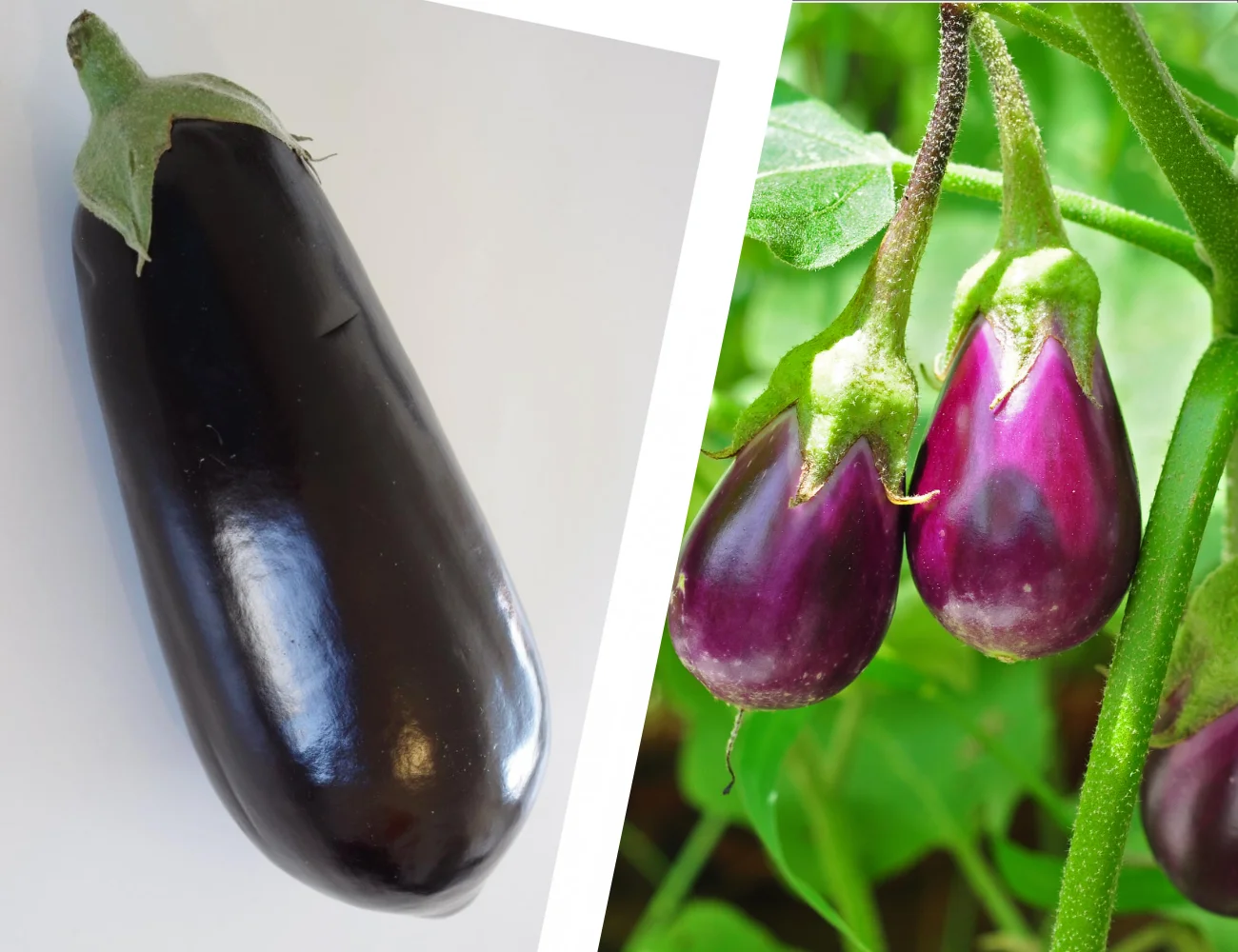Most of us have an opinion regarding the taste of eggplants—usually determined by whether or not we’ve tasted a good one. But, regardless of taste, are eggplants good for you?

Eggplants: The Good
As we discuss in our guide Stop Eating Bitter Eggplants, eggplants contain a compound called Anthocyanins which are very good for you. This phenolic compound (a flavenoid) is primarily found in the skin of eggplants. It is an antioxidant and gives eggplants their purple color.
From a strictly nutritional standpoint, you’d want to leave the skin on eggplants in order to reap the benefits of this potent antioxidant. However, as we’ll discuss below, there is a downside to eating eggplants with their skin—or at least very dark skins.
Eggplants: The Bad
Over the past few decades, you’ve probably heard reference to vegetables and fruits in the ‘nightshade’ family being bad for you. Eggplants (like potatoes, tomatoes, peppers) are members of the ‘nightshade’ family. Scientifically speaking, modern medicine mostly agrees that it is an exaggeration to say nightshades are ‘bad’ for you. However, eggplants (like other ‘nightshade’ family foods) do contain a compound called solanine which can be toxic in a large enough quantity.
Solanine is one of the main compounds which contribute to some eggplants tasting bitter. For the plant, it has an important function because it acts as an insecticide. However, humans have been known to get the symptoms of food poisoning from even moderate quantities of solanine. Also, some have argued that solanine can contribute to inflammation in people who are sensitive to it.
The concerns about solanine are a bigger issue for potatoes—specifically potatoes with a green tint on the skin or inside the potato. But this article is about eggplants. Just a word of warning: If a potato has a green tint on the skin, discard it! Discard it even if the potato has no green inside.
Despite the potential downsides to eggplants, they are (along with their nightshade family members) an important staple in the Mediterranean (Italy, Spain, Greece) where the so-called Mediterranean Diet takes its inspiration. And this eating pattern is renowned precisely because it has been associated with health and longevity in the populations who follow it.
If we eliminated nightshades from our diet due to solanine concerns, we’d also be eliminating several of the key ingredients thought to make the Mediterranean Diet so healthy.
So, in terms of health, we eat eggplants in moderation—following the guidelines below for choosing eggplants that are likely to taste better— which thankfully also will result in eggplants that contain less solanine.
Eggplants: The Ugly (Taste)
Both anthocyanins (the ‘good’ stuff found in the skin of eggplants) and solanine (the ‘bad’ stuff found in both the skin and flesh of eggplants) contribute to the bitter taste of an eggplant.
So what to do? Here’s our advice for choosing the healthiest and tastiest eggplants:
- Choose light-skinned eggplants: The content of α-solanine in purple eggplants have been shown to be significantly higher than light or green eggplants. So, choose eggplants with white, light or a mix of purple and white in their skin.
- Choose mature eggplants (with few seeds): The content of α-solanine has also been shown to be higher in the flesh of young, immature or overripe eggplant. So, choose eggplants that are mature with few seeds.
By following these tips, we drastically minimize solanine, while still getting some antioxidants from the eggplant skin.
Eggplant Recipes
Here are some Italian Mediterranean Diet recipes that feature eggplant!
Sicilian Swordfish Pasta with Eggplant

Pasta alla Norma


